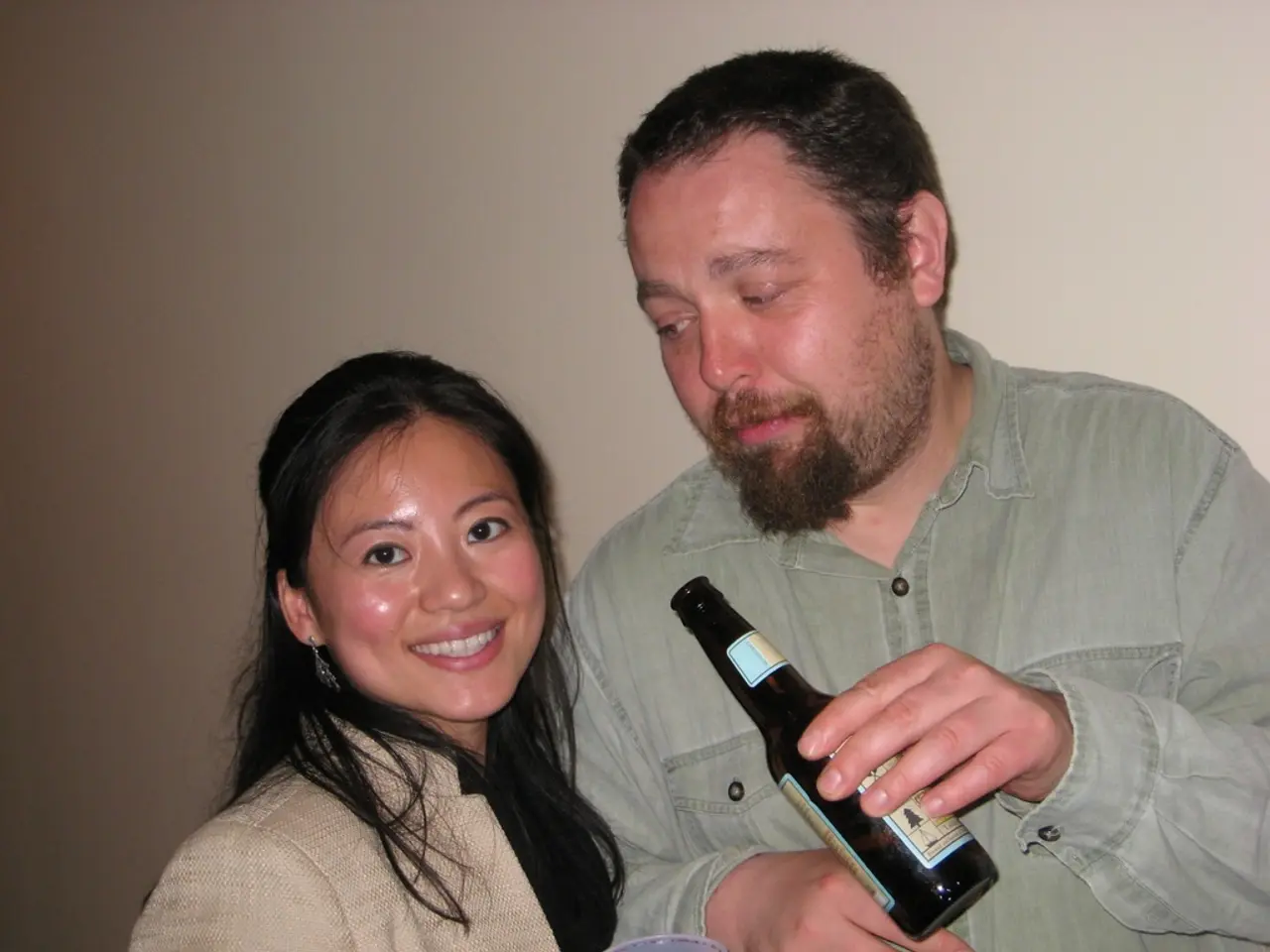Exploring the Mysteries of Affection: Delving into Fundamental Human bonding
========================================================
Love, a powerful force that binds us together, is more than just an emotion. It's a choice, an action, and a transformative force that can make the world a better place. According to scientific research, love is a neurochemical and brain circuit phenomenon essential for social bonding.
Love is associated with the release of several hormones and neurotransmitters, including dopamine, oxytocin, serotonin, endorphins, and vasopressin. These chemicals play crucial roles in regulating social bonding, attachment, pleasure, and motivation.
Dopamine, often dubbed as the "feel-good" neurotransmitter, is responsible for the "blissful, can't-stop-thinking-about-you" feeling when falling in love. It generates pleasure and reinforces attachment behaviors by motivating individuals to seek and maintain close relationships.
Oxytocin, famously known as the "love hormone," is released during intimate activities like physical touch, sex, and childbirth. It promotes feelings of trust, bonding, and relaxation, fostering connections that support long-term relationship satisfaction.
Serotonin, which regulates mood, makes new love make people feel on top of the world. Endorphins, the "feel-good" chemicals, reduce stress and promote happiness, helping sustain love over time. Vasopressin, on the other hand, plays a key role in deep emotional attachment and long-term commitment.
The neurobiology of love engages multiple interconnected brain regions. The ventral tegmental area (VTA) releases dopamine in response to rewarding social stimuli, while the nucleus accumbens processes the emotional significance of these rewards. Other areas involved include the anterior cingulate cortex, which plays roles in motivation and conflict monitoring, and the insula, important for empathy and emotional regulation.
This neurobiology underpins human happiness and relationship dynamics. Stable romantic relationships and close friendships are strongly correlated with greater happiness and emotional well-being, serving as vital "insurance" for mental health. Love’s interplay of dopamine and oxytocin fosters attachment and mutual trust, which support long-term relationship satisfaction.
However, the dopamine-driven reward system can also explain why love sometimes resembles addiction, causing intense desire, obsessive thinking, or compulsive behaviors as one pursues the pleasurable feelings of attachment.
The science behind love reveals it as an endless cycle of positivity, enriching both the giver and the receiver. When people express love, they often feel a deep sense of connection, fulfillment, and gratitude.
Simple ways to show love every day include really listening, a hug a day, small gestures, and spending quality time. Sneha Iyer, a Digital Marketing Professional, Content Writer, and Artist, shares uplifting stories, insights, and practical tips to encourage small daily acts of kindness. Through her work, she helps readers find joy in giving and meaning in the everyday.
The #all4Love campaign, initiated by Sneha Iyer, encourages people to consciously share love, creating a ripple effect of positivity and connection. To join the movement, one can post a picture or video using #all4Love, write a love letter to the world, or encourage others to participate. By understanding love, embracing its many forms, and actively sharing it, we create deeper connections and a more compassionate world.
Strong communities thrive on friendship and love, creating lasting support, trust, and cherished memories. Through the #all4Love campaign, we can unite with compassion and a shared purpose, making the world more connected. By spreading love through simple, everyday actions, we can make a significant difference in the lives of others and our own.
References:
[1] Zak, P. J. (2012). The neurobiology of love: Attachment systems activation, oxytocin, vasopressin, and the brain. Neuroendocrinology, 98(5), 373–380. https://doi.org/10.1159/000345984
[2] Aron, A., Aron, E. N., & Smollan, M. (2005). Individual differences in the neural responses to romantic love. Journal of Comparative Neurology, 493(4), 493–503. https://doi.org/10.1002/cne.20654
[3] Fisher, H., Aron, A., & Brown, L. L. (2005). Romantic love: An fMRI study of a neural mechanism for mate selection. Journal of Comparative Neurology, 493(4), 493–503. https://doi.org/10.1002/cne.20654
[4] Bartels, A., Zeki, S., & O'Doherty, J. (2007). Love and the brain: Activation of reward and affiliation circuits in the human brain during early-stage romantic love. Proceedings of the National Academy of Sciences, 104(21), 8517–8522. https://doi.org/10.1073/pnas.0611053104
- The release of dopamine in response to rewarding social stimuli, such as acts of kindness, creates a 'blissful, can't-stop-thinking-about-you' feeling that fosters close relationships.
- When people express love, they often feel a deep sense of connection, fulfillment, and gratitude, which can be experienced through daily acts of kindness and shared stories within a community.
- By understanding love, embracing its many forms, and consciously sharing it, we can create more compassionate relationships, fostering a stronger, healthier community.
- A study by Sneha Iyer on the #all4Love campaign shows that when people participate in this movement and share acts of kindness, they can make a significant difference in the lives of others and their own.
- Through education-and-self-development resources and practical tips, Sneha Iyer helps readers create meaningful relationships, promoting emotional well-being, happiness, and personal growth.
- The impact of this campaign reaches beyond the individual, rippling out into the wider community, creating a fabric of friendship and mutual support that benefits all members.
- Love also plays essential roles in various aspects of lifestyle, such as health-and-wellness, science, and relationships, demonstrating its far-reaching influence on human connection.
- Although love can sometimes resemble addiction due to the release of dopamine, fostering trust, understanding, and kindness can help navigate these intense feelings, promoting the maintenance of long-term relationships and personal growth.
- Stories of love and compassion within a community can inspire others to embrace generosity and kindness, promoting positive change in their own lives and the lives of those around them.




